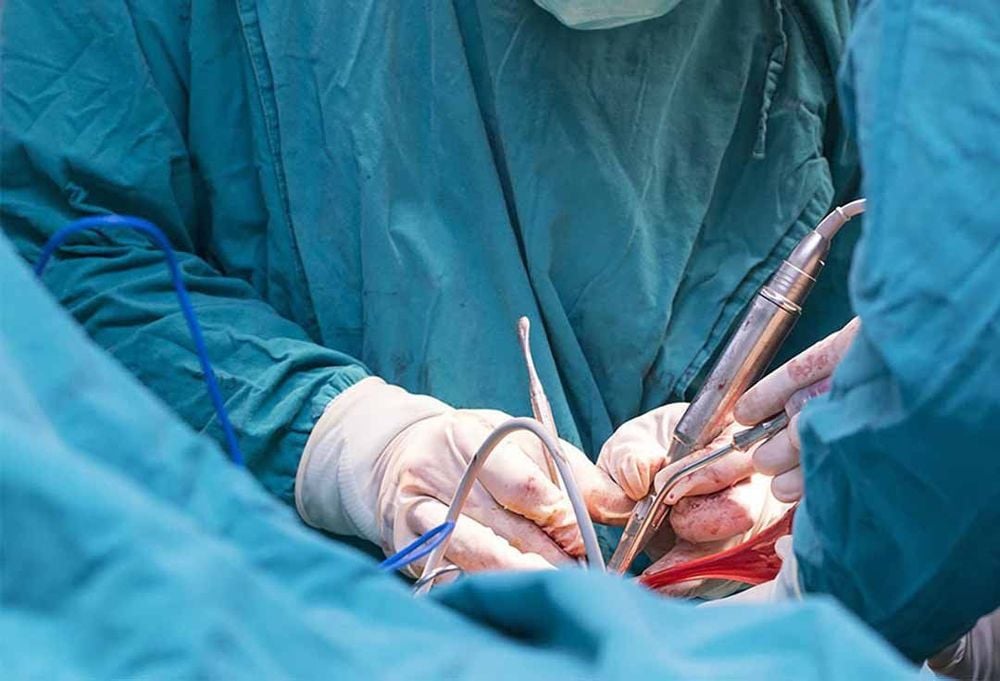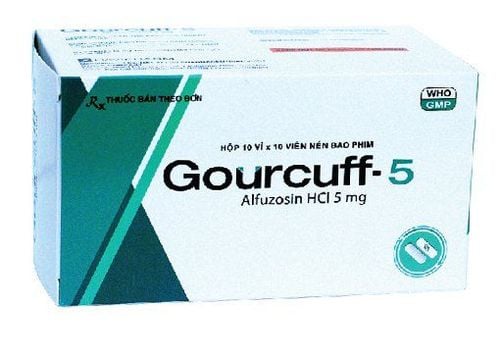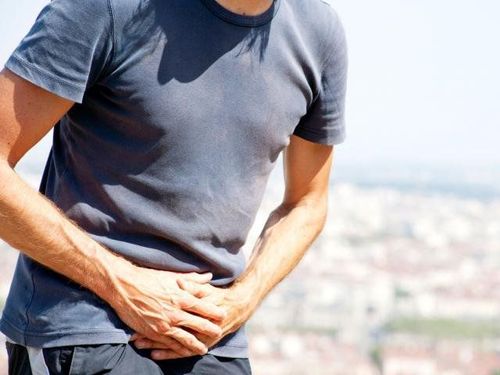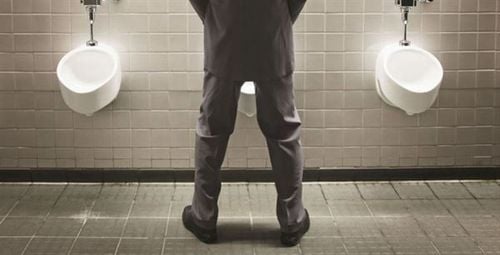This is an automatically translated article.
Prostate enlargement is a fairly common health problem in middle-aged men. Symptoms of prostate enlargement are often not obvious in the early stages, so it is difficult for patients to detect early.
1. What is an enlarged prostate?
The prostate gland is a small gland located in the male genitals. At birth, the prostate gland is about the size of a pea but will reach a stable size as an adult. In adults, the prostate gland is about 2cm in diameter, weighing 10-20g, responsible for secreting mucus that neutralizes the acidic environment of semen and helps transport semen.Prostate enlargement is a condition in which the prostate gland is abnormally enlarged, causing discomfort to patients in the area around the bladder and urinary tract. When enlarged, the weight of the prostate gland can increase 5 times, up to 100g. This is a common disease in older men, which can greatly affect the patient's psychology and quality of life.
2. What symptoms will an enlarged prostate cause?
Some common symptoms in patients with prostate enlargement are:
Difficulty urinating: The patient feels difficulty urinating immediately but has to wait a while before urinating. When urinating, you have to try to push, the urine is usually very little, the urine stream is weak, sometimes causing a burning sensation when urinating; Intermittent urination: When the patient is urinating, the urine is interrupted, the water jet does not shoot strongly, but leaks little by little (due to stones in the bladder); Urinary frequency: The patient has no control over the urine, so the frequency of urination often doubles than usual. The phenomenon of frequent urination occurs both during the day and at night, especially in the early morning; Urinary incontinence: The patient has an uncontrollable urge to urinate even though the time to go to the toilet is not long apart. This situation makes the patient very restless and uncomfortable; Other symptoms: Sometimes the patient has a urge to urinate but cannot hold back even for a few minutes, after urinating feels uncomfortable, still feels the need to urinate, may have blood in the urine, urine infection. Prolonged urinary obstruction makes the patient tired, sleepy, vomiting, has symptoms of urinary tract toxicity,... Symptoms of prostate enlargement are often markedly worse after traveling long distances. by bicycle or motorbike. However, because symptoms often progress slowly, many patients get used to it and find it difficult to recognize their disease.

Biểu hiện thường gặp ở bệnh nhân bị phì đại tuyến tiền liệt là tiểu khó
3. Complications of prostate enlargement
Prostate enlargement makes it difficult to urinate, does not go all the way, for a long time leads to an enlarged bladder or the accumulation of bacteria in the bladder causing infection. If not treated promptly, the disease can cause complications such as:
urinary retention, blood in urine: The patient feels unable to urinate, severe pain in the lower abdomen, severe cases may be blood in the urine while trying to urinate; Urinary tract infection: Urine cannot drain, causing infection, leading to manifestations such as cloudy urine or painful urination; Bladder stones: Severe infection, stagnant urine in the body has formed stones, causing urinary tract obstruction. In addition, stones contain many bacteria, so if left for a long time, it can cause more serious diseases; Renal failure: Urine cannot be drained, increasing urine pressure, causing water retention, nephritis, pyelonephritis, long-term can lead to glomerulonephritis or chronic kidney failure.
4. Treatment of prostate enlargement
Prostate enlargement is considered harmless if it does not cause unpleasant symptoms such as slow urination, difficulty urinating, urinary incontinence,... If this condition affects quality of life such as insomnia, fatigue Because the patient has to wake up many times during the night to urinate, the patient needs immediate treatment.
Commonly used methods to treat the disease include:
4.1 Medical treatment Using Alpha 1 blockers: Including drugs like Alfuzosin, Doxazosin, Terazosin, Prazosin,... they have the effect of relaxing the muscle wall. vessels, prostate gland and bladder, thereby reducing urethral obstruction and making it easier for the patient to urinate. However, these drugs have the side effect of lowering blood pressure; Anti-androgen drugs that inhibit 5-alpha reductase: These include Dutasteride and Finasteride. They have a good therapeutic effect, but come with side effects such as reducing sex drive and causing problems with erectile dysfunction. Note, patients need to inform the doctor about the drugs they are taking. If a drug is detected that affects the urinary tract disorder, the doctor will make appropriate adjustments such as changing the dose, the time of taking the drug or changing to another remedy,...
4.2 Surgical treatment When prostate enlargement becomes severe, drug treatment is not much effective, doctors often appoint patients to perform surgery. Patients are indicated for surgery when: recurrent urinary tract infection, bladder stones or bladder diverticulum, recurrent hematuria, complete urinary retention after catheter removal, renal failure, severe insomnia - greatly affect daily life. The most common surgical method today is endoscopic transurethral surgery.

Khi bệnh phì đại tiền liệt tuyến trở nặng, việc điều trị bằng thuốc không có nhiều hiệu quả thì bác sĩ thường chỉ định bệnh nhân thực hiện phẫu thuật
4.3 Other methods of Oriental medicine: Enlarged prostate gland can also be treated with remedies made from natural medicines. The male remedies are completely benign, safe, effective and have no side effects, but the treatment time is usually long; Lifestyle changes: Patients should pay attention to improving their living habits to repel diseases, improve resistance and have a healthier body. Some important notes include: Eat healthy foods: Patients should increase their diet with dark green vegetables such as spinach, kale, broccoli, spinach, ... and tomatoes, berries, almonds, seaweed, walnuts, etc. They are high in antioxidants, which protect the prostate against the damaging effects of free radicals; Regular exercise: Sports exercises, strengthening muscles will help promote the body to produce more testosterone, better fight prostate diseases; Things to avoid: Patients should avoid drinking a lot of water about 3 hours before going to bed, do not drink drinks containing diuretics such as coffee, tea, alcohol, ... These drinks can affect bladder muscles, stimulating the kidneys to work, causing frequent urination during the night; Keep calm: Patients need to pay attention to stay away from stressful situations to fight the disease. Prostate enlargement is a common disease in older men. The disease is not difficult to treat, but it should be detected as soon as there are abnormal urinary symptoms in order to be diagnosed and treated early. At the same time, each person needs to pay attention to lifestyle changes to improve general health and prevent disease.
Vinmec International General Hospital with a system of modern facilities, medical equipment and a team of experts and doctors with many years of experience in medical examination and treatment, patients can rest assured to visit. examination and treatment of prostate enlargement at the hospital.
Please dial HOTLINE for more information or register for an appointment HERE. Download MyVinmec app to make appointments faster and to manage your bookings easily.
SEE MORE
Prostate enlargement: Causes, symptoms, how to detect Prostate enlargement: What to check? Treatment of prostate enlargement with Bipolar knife - an advanced method of prostate cancer treatment













